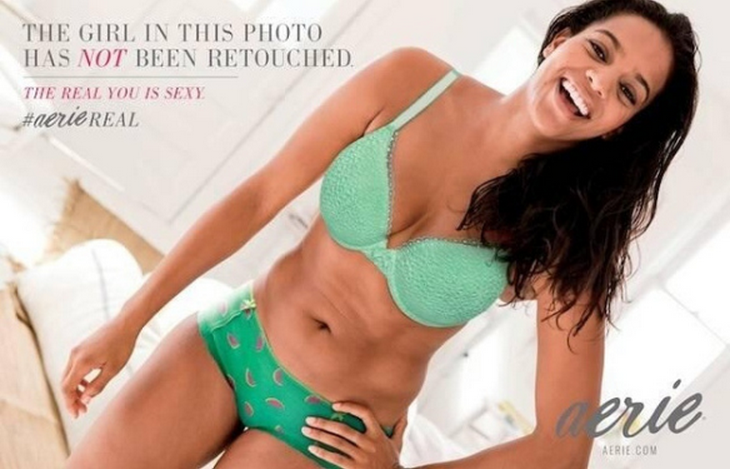
Women’s bodies don’t belong in advertising
By Jesse Stilwell, November 29 2016 —
Everyone knows that sex sells. For a long time, that has meant sexualized portrayals of thin white women. Women’s bodies are objectified in countless marketing campaigns to generate massive profits.
But people have been calling out these corporations for objectifying women and this has pushed companies to change their marketing to appeal to diverse consumers, without losing the sex appeal.
In response, some companies have started using the body positivity movement to market their products. Advertising campaigns such as Dove’s Campaign for Real Beauty and Aerie’s #AerieREAL have used plus-sized and racially diverse models to lure more customers. At the Glamour Women of the Year Summit, plus-sized supermodel Ashley Graham promoted the Mattel Barbie Doll created in her image — a doll whose thighs touch, unlike any of their previous toys. People are labelling this a positive step in the right direction for women and an achievement for feminism. But this is simply not true.
Corporations can now sexualize even more women for even more profit without the risk of being criticized for discrimination. This marketing perpetuates the idea that a woman’s most valuable asset is her looks and that companies that celebrate the diversity of how women should be rewarded with our money more than those who only promote traditional ideas of sex appeal.
Of course, displaying women in advertisements tells us nothing about the quality of products. A model’s dress size has nothing to do with a product’s ability to satisfy the customer.
To combat this, companies must create marketing that demonstrates their products are high quality. They do not have to be body positive at all. They can just be “conscientious consumers making wise choices positive.” Corporations don’t have to mention women’s bodies at all and certainly don’t have to centre their entire advertising campaigns around them in order to make a profit.
As university students, we need to look critically at the media around us and the endless barrage of advertisements we are exposed to every day.
Letting go of the idea that sex sells is one step closer to equality for women regardless of diversity.
